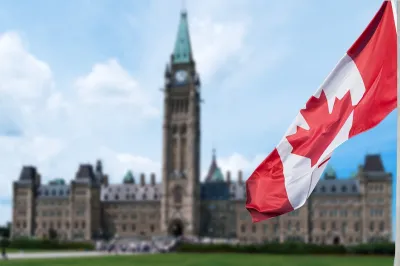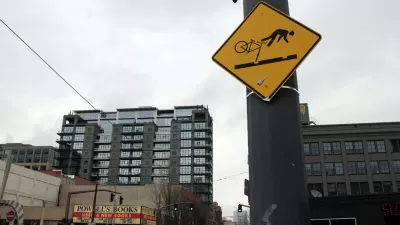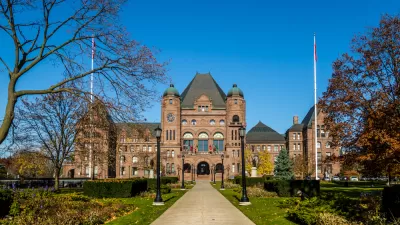Doug Ford, the no-nonsense premier of Canada's most populous province, Ontario, is taking on Trump where it hurts — making American energy more expensive.

President Trump's trade war with Canada has a new combatant: Doug Ford, who has served as the premier of Ontario since 2018, “has made good on his threat to slap a 25 per cent surcharge on electricity sold to the U.S. in retaliation for President Donald Trump‘s tariffs,” reports Rob Ferguson in a developing story for the Toronto Star on March 10.
[Yes, tariffs can be applied on imports or exports of goods.]
Ferguson adds that the “tariff response charge” would raise “an estimated $300,000 to $400,000 per day” and “will be paid by utilities in New York, Michigan and Minnesota that import power from generators of electricity in Ontario."
“Until these tariffs are off the table, until the threat of tariffs is gone for good, Ontario will not relent,” Ford said Monday. “We will not back down … we will apply maximum pressure to maximize our leverage.”
Ford had warned the three governors of the pending move last week, and reiterated that he “will not hesitate to shut the electricity off completely” if Trump escalates the trade war.
Ford hoped that the export energy tariff would spread to other provinces.
Ford said Alberta Premier Danielle Smith should agree to a federal surcharge on her province’s high volume of oil and gas exports south of the border, calling it a “trump card.”
“The Americans, all of a sudden their gas prices go up 90 (cents) to a dollar a gallon, they will lose their minds,” added Ford. “We need to at least put that in the window.”
However, Smith would have none of it, “calling it 'an absurd and self-destructive idea' for an industry that is the lifeblood of Alberta’s economy,” added Ferguson.
Rob Gillies of The Associated Press also reported on Ontario's electricity export tariffs that became effective Monday.
FULL STORY: Doug Ford slaps 25 per cent tax on electricity to the U.S. in response to Trump tariffs

Planetizen Federal Action Tracker
A weekly monitor of how Trump’s orders and actions are impacting planners and planning in America.

Restaurant Patios Were a Pandemic Win — Why Were They so Hard to Keep?
Social distancing requirements and changes in travel patterns prompted cities to pilot new uses for street and sidewalk space. Then it got complicated.

Map: Where Senate Republicans Want to Sell Your Public Lands
For public land advocates, the Senate Republicans’ proposal to sell millions of acres of public land in the West is “the biggest fight of their careers.”

Maui's Vacation Rental Debate Turns Ugly
Verbal attacks, misinformation campaigns and fistfights plague a high-stakes debate to convert thousands of vacation rentals into long-term housing.

San Francisco Suspends Traffic Calming Amidst Record Deaths
Citing “a challenging fiscal landscape,” the city will cease the program on the heels of 42 traffic deaths, including 24 pedestrians.

California Homeless Arrests, Citations Spike After Ruling
An investigation reveals that anti-homeless actions increased up to 500% after Grants Pass v. Johnson — even in cities claiming no policy change.
Urban Design for Planners 1: Software Tools
This six-course series explores essential urban design concepts using open source software and equips planners with the tools they need to participate fully in the urban design process.
Planning for Universal Design
Learn the tools for implementing Universal Design in planning regulations.
Heyer Gruel & Associates PA
JM Goldson LLC
Custer County Colorado
City of Camden Redevelopment Agency
City of Astoria
Transportation Research & Education Center (TREC) at Portland State University
Camden Redevelopment Agency
City of Claremont
Municipality of Princeton (NJ)





























